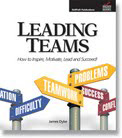Is this YOU?
- You invest years of hard work in your job, proving your worth to the organization;
- You establish a record of consistent success and excellent performance;
- You invest in your education, acquiring degrees or certifications;
- You apply for a position at the next level, one you are certain you are ready to take on;
AND…YOUR APPLICATION IS REJECTED…with comments like these:
- “You are not a good fit for this particular position.”
- “Your qualifications do not meet the requirements for this job.”
- “We are needing someone with a different professional background than yours.”
- “Though you bear good educational degrees as well as working with us the last three years, your current experience for this position is not enough yet.”
I hear from more and more young and eager professionals in this situation who express the same confusion and frustration:
“I’ve been working here for years; I have lots of experience in my portfolio; I receive consistently high performance reviews; I have proven my value to this organization; I have an MBA; WHAT ELSE DO THEY WANT????”
Every employee…in every organization…wants to know…HOW TO SUCCEED. In particular, they want to know HOW TO BENEFIT FROM THEIR SUCCESS and advance in their career.
This is why I devoted a fourth of my book—Leading Teams—to this exact topic: How to succeed personally and professionally. I’m not going to reprint the section here—you can read it for yourself if you’re interested. Instead, I’m going to tackle a portion of the question by addressing a familiar adage in personal success annals:
“It’s not WHAT you know…it’s WHO you know!”
That has often been touted to explain the importance of networking and relationship-building in the realm of business and work.
I certainly won’t dismiss the importance of networking and relationship-building when it comes to personal and professional success—far from it—I firmly embrace its importance, myself!
Up Close and Personal
I am often approached by ambitious professionals in my seminars who express a desire to “do what YOU do.” They are not shy in asking my advice about how to succeed as a consultant. I am very clear in my most important word of advice:
“Start building your professional network NOW…don’t wait until you need it!”
So…is the adage REALLY true??? Is it more important WHO you know than WHAT you know???
BEFORE I GO ANY FURTHER… Can we all agree that success depends on much more than two or three simple elements???? So…what I am going to share in the rest of this article is a cogent examination of just three important elements. And if we are going to look at JUST THREE, then…
…My belief is that success lies at the intersection of all three elements I listed at the beginning of this article—it is a combination of WHAT you know; WHO you know; and WHERE you apply what you know.
My purpose in writing this comes in response to a number of posts I have read by ambitious professionals whose career development has been frustratingly stalled. Their heartfelt applications have been rejected with vague and useless responses. Their expressed desires to grow, advance, and move their career forward have collided with a strangely mysterious brick wall. They are frustrated and perplexed by the vague and unhelpful responses I listed at the beginning of this article.
So…let’s explore these three elements and reflect on their respective roles with regard to personal and professional success…
1. WHAT you know…
IT IS ABSOLUTELY ESSENTIAL THAT YOU KNOW WHAT YOU ARE DOING. Did I really have to say that? It’s patently obvious that…in any role you fill…you must know what you’re doing well enough to perform well in your position of responsibility. That encompasses some key qualities and skills like—critical thinking; creative problem-solving; agility; the ability to learn—among many others (the list is pretty long, if you want to take a deep dive into the subject!).
It’s pretty simple: You are not going to advance in your career unless you can demonstrate a record of effective performance at your current level. Higher-ups think logically at this point. Their view is straightforward: “If you aren’t succeeding where you are NOW, why on earth would we trust you with even greater responsibility???”
Consistency is Paramount
One additional aspect of performance is important here: You must show that you can perform effectively consistently. Higher-ups need to see a long-standing pattern of effective performance. It’s one of the reasons why tenure in a position is a part of how you are judged.
Up Close and Personal
One of my coaching clients (I’ll call her Judy) served in a large healthcare organization, managing a team of nursing supervisors over multiple locations. She was everything you would expect in a “high-performer”—extremely knowledgeable; possessing demonstrable technical skill; and uniquely effective at coaching and developing her staff. She originally engaged my services to help her navigate the challenging political landscape of her organization and the collaborative demands of her position. I found her to be an intelligent, eager, fast learner.
At one point in our coaching sessions, she presented with the issue of a new boss. This individual was newly-hired, to take over from her former supervisor who had recently been promoted.
In the beginning, my coaching focused on helping Judy get to know her boss better—to identify her boss’s concerns, priorities, and preferences for things like communication, management style, and need for information. These are typical subjects to address when assigned to a new boss or supervisor.
In spite of Judy’s best efforts, her new boss became the object of serious concern rather than helpful support. Within the first few months, she openly questioned Judy’s performance, abilities, leadership skills and suitability for her role.
At this point, I began to dig a bit deeper into the situation. I pressed Judy for details about her boss’s background and experience. “What do you know about her professional history?” I asked.
“Oh she has a very impressive CV,” Judy replied. “She worked for [large company #1] for two years, and then joined [large company #2] for a couple of years, and then worked for [large company #3] for 2 years, and then…”
“STOP,” I interrupted. “I get the picture.” I told her, “My goal is to help you manage her mismanagement of you for the next year and a half or so, until she leaves or is terminated.”
Judy was astonished. “How can you say THAT?” she asked.
“Because,” I explained, “It will take management about a year to figure out that she is a terrible boss and really doesn’t know how to manage people well, and then it will take a second year to figure out how to get rid of her. Trust me, she’ll be gone by the end of two years. My job now is to help you keep her at arm’s length; make her feel like she is effectively ‘managing’ you; and help you build relationships with other key leaders in your organization, so she can’t isolate you completely from higher-ups.”
I will never forget the text I got from Judy almost two years to the day of her boss’s hiring:
“I just got word. My boss is leaving the company.”
I’ll say it again—consistency is paramount. Judy’s failing boss couldn’t establish a consistent pattern of success in any of the organizations she served. To me, that was a dead giveaway—she was incompetent. SO…How was she able to get all those jobs? It’s hard to say. Some people are REALLLY good at interviewing and candidating for the job, but not so good at doing the job.
But if you want to advance in your career, you must demonstrate a consistent pattern of high performance in your work.
Now to the Next Point
Judy’s situation also illustrates the next point of this article—it is important WHO you know.
2. WHO you know…
Part of my goal in helping Judy was to make sure she did not become cut off from other key leaders in her organization. Yes, your boss is your most important leadership “connection” in your organization. But it would be a shortcoming if your boss were your only leadership connection! In Judy’s case, her boss had a completely inadequate and inaccurate view of her. That was dangerous to her career and her future with the organization. I wanted to make sure that other leaders in her organization—those with proven credibility—were aware of her abilities and demonstrable value to the organization.
You, too, should build valuable professional relationships with leaders in your organization and in your industry.
Start with these suggestions:
Recruit a mentor. Find someone in your organization, or perhaps in another organization in your industry. You may even have access to a formal program within your own organization. Take advantage of it if it exists. This is easier to do than you think. There are books and web articles that will show you how to do it!
Build friendships with others in your industry—at your same level, but not necessarily in your same organization. Find people like this that you can trust—people you can go to for advice, feedback, and venting. This was one of the best pieces of advice I received from one of my mentors, early on in my career. (Robert Clinton calls this a “peer co-mentor” because it’s a relationship with built-in reciprocity!)
Join a professional association in your industry or profession. First, it will introduce you to people who can serve in either of the first two categories I just mentioned. It will also often introduce opportunities for learning and growth provided by conferences and conventions sponsored by such organizations. Another potential advantage—many such associations have local chapters that meet on a regular basis, providing additional opportunities for networking and professional development. Finally, professional associations introduce you to other organizations in your industry, expanding your job search parameters when needed. And of course, you can now participate in these networks virtually, on-line!
Attend training seminars and participate in professional development opportunities offered by your organization. One of my corporate clients offers leadership development classes to employees on three different levels. One of the most popular training experiences is one that I facilitate myself—to equip students to give more effective speeches and presentations (which happens to be a very promotable skill in most organizations!).
Volunteer for special projects or assignments in your organization. I’m referring to initiatives that bear the special interest or support of higher-level executives. Often these assignments provide greater and broader visibility with higher-ups.
Find a sponsor in your organization. A sponsor is different than a mentor. A sponsor’s special role is to help you advance within the organization. They do that by helping you gain greater visibility with higher-ups and greater access to gainful opportunities. They accomplish that by introducing you to other leaders in the organization; allowing you to accompany them at key functions; recommending you for certain assignments or projects; vouching for you when you apply for advancement; and helping steer your career path in a helpful direction.
Many successful professionals vouch for the importance of having a sponsor. In a 2018 TED talk, Wall Street executive Carla Harris (a vice chairman at Morgan-Stanley) told her audience:
“A mentor, frankly, is a nice to have, but you can survive a long time in your career without a mentor, but you are not going to ascend in any organization without a sponsor…”
NOTE: If you are looking for advice about how to recruit a sponsor, check out the FastCompany web article posted on February 26, 2019 entitled, 7 successful women explain how they got the sponsor that changed their careers. It’s well worth the read.
Yes, building helpful professional relationships in your organization and your industry is absolutely important. But, of course, there’s more…
3. WHERE you apply what you know…
I will repeat another piece of helpful advice I received from one of my mentors:
All opportunities are not created equal.
WHERE you work is just as important as HOW WELL you work. Some job opportunities are better than others. “Better” opportunities give able and dedicated people the chance to shine—to perform and to achieve at the level of their very best, and to do so with the greatest effect and impact. Part of the challenge of leadership is to exercise discernment when choosing places and times to serve—to understand the nature of each opportunity and how it will enlarge or limit one’s potential for success. When you apply for a job, you need to use the opportunity to interview the organization and the situation. You want to look for a place that provides employees…freedom to exercise creativity and innovation; greater exposure to higher-ups and industry leaders; broader experience; strategic professional development; a greater likelihood of promotion; and helpful professional connections.
In one of my past articles, I highlighted the advantages and disadvantages of two main types of organizations: large ones and small ones. It’s filled with much more helpful detail, and you can access the article with this link:
http://thebossdoctor.net/wp-content/uploads/2020/10/PTRAIN13.pdf
Up Close and Personal
I started out in small organizations. I got LOTS of experience doing LOTS of different things. (That tends to happen in small organizations—leaders end up wearing more than one hat!) I was forced to become a generalist—a Jack of all trades—learning basic things about a lot of different areas of responsibility. It equipped me with a more holistic view of the organization—a better understanding of how all the different parts of the organization needed to function together to enable the organization to succeed as a whole. And because the organization was a small one, I also had a strong one-on-one relationship with the man at the top. We spent a lot of time together, reviewing the work that needed to be done; planning our efforts; analyzing our results. But I also had the opportunity to learn and grow from his knowledge, experience, and mentoring. Just as important, my role there taught me how to work well with superiors—to manage their oversight; adjust to their preferences; communicate substantively; and collaborate effectively.
My work in two small organizations also introduced me to the professional network that eventually opened the door to larger organizations where I could focus entirely on my area of specialized expertise. In those environments, I could develop greater effectiveness in that one, particular role; build my professional reputation more broadly; and experience greater success as a result. Over time, I had opportunities to work with a number of large organizations, which ultimately equipped me for a successful career move to consultancy.
Which One Is Most Important to YOU???
If you are experiencing a stall in your career, it might be helpful to take a serious and honest look at each of these three elements, to determine where and how you might be able to overcome your “career inertia” and start moving onward and upward. It might also help to recruit an executive coach who can advise you about your professional development and give you some career guidance as well.
Above all, feel free to avail yourself of the host of helpful ideas, tools, and resources available on my blogsite: www.TheBossDoctor.net
Everything is FREE and there are no strings attached. And if you are looking for additional help, it’s here if you need it!
Until next time… Yours for better leaders and better organizations,
Dr. Jim Dyke – “The Boss Doctor” ™ helping you to BE a better boss and to HAVE a better boss!







